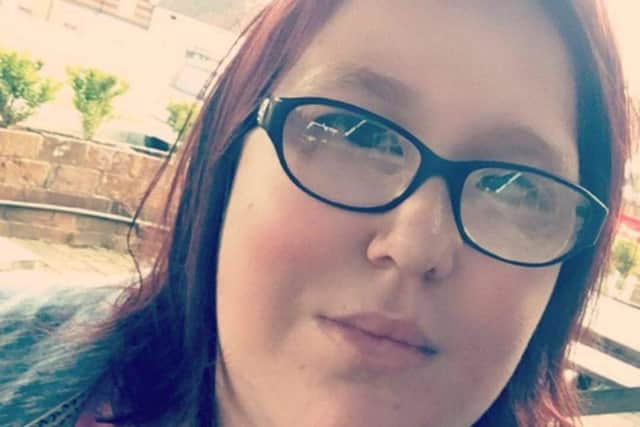Bedford woman diagnosed with cancer at 21 backs campaign to stop illness getting in the way of friendships
and live on Freeview channel 276
When Alisha Browne was diagnosed with cervical cancer at the age of 21, not only did she have to deal with the devastating news, she had to deal with her friends becoming distant.
Alisha - now aged 23 - found her mates just didn't know how to react.
Advertisement
Advertisement
And now she is backing a new Teenage Cancer Trust campaign which aims to stop cancer getting in the way of friendships.


New research from the charity has revealed that during treatment three quarters of young people with cancer found their friendships changed – with more than half finding friends stopped contacting them as much, and over a third finding some stopped contacting them completely.
Nearly half of those surveyed believe that awkwardness around what to say or do when they were diagnosed was the reason friends fell out of touch.
Alisha said: “I had friends that didn’t know how to react when they found out I had cancer and they became distant. My advice to others is please don’t let cancer ruin your friendships. Your friend is going through enough and they need your support.
Advertisement
Advertisement
“What they can do instead is offer to go round to their house or go out for a coffee and be there if they need to talk. Have compassion. You will never be able to understand what they are going through unless you’ve had cancer yourself, but you can listen to their worries and offer support.
“They will need your support after the treatment ends too. A lot of people think that once cancer treatment finishes there’s this big celebration and the person can move on, but sometimes people are so focused on the treatment that it actually hits them the most once it’s over.
"They may have bad days where they feel down or they may feel fatigued, so please bear with them.”
Teenage Cancer Trust funds specialist hospital units, nurses and youth support coordinators across the UK which provide age-appropriate care and emotional support to those in need.
Advertisement
Advertisement
Helen Veitch, head of Youth Support Coordinators, Teenage Cancer Trust, said: “It is totally understandable to feel scared when your friend has cancer, and not know what to say or do, or be afraid of saying the wrong thing or asking the wrong question.
“But not contacting your friend as much, or not getting in touch at all because you feel awkward or frightened, can feel to your friend like you’ve forgotten or even abandoned them at a time when they really need you.
“Speak to them about how you are feeling, ask how you can help them out, and find out more about how you can support them on the Teenage Cancer Trust website.”